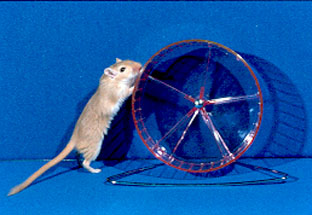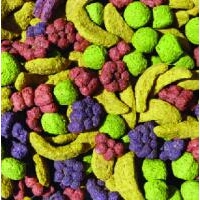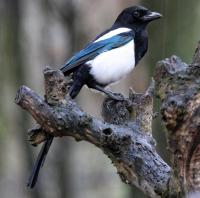- Home
- FAQs
- Customer Video Gallery
- Customer Photo Gallery
- Bird Facts
- Bird Food Blog
- Bird Information
- Feeding Advice
- Small Animal Information
- A to Z of Guinea Pigs
- A to Z of Hamsters
- A to Z of Rabbits
- Basic Care for Guinea Pigs
- Basic Care for Hamsters
- Basic Care for Rabbits
- Basic care for Chinchillas
- Basic care for Ferrets
- Basic care for Gerbils
- Basic care for Mice
- Basic care for Rats
- Buying a Healthy Small Animal
- Does your Reptile need a Licence
- Equipment for Ferrets
- Equipment for Hamsters
- Equipment for Mice
- Equipment for your Chinchilla
- Equipment for your Gerbil
- Equipment for your Guinea Pig
- Equipment for your Rabbit
- Keeping a House Rabbit
- Dog Information
- Cat Information
- Customer Information
- Fat Balls
- Suet Pellets
- Straights
- Seed Mixes
- Suet Treats
- Mealworms
- Bird Feeders
- My Account
Basic care for Gerbils
With their beautiful dark eyes, long furry tail, twitching whiskers and affectionate nature, gerbils make perfect pets for novice owners.
Housing and bedding
Gerbils are social creatures and although they can be kept on their own they thrive best living in established and stable groups (two female youngsters from the same litter make ideal companions, but males will fight once they reached maturity). A male and a female will breed, while introducing another gerbil (adult or youngster) to a solitary adult will usually result in a punch-up.
In the wild gerbils live in burrows therefore you should choose suitable living accommodation that permits them to tunnel to their hearts’ content; aquariums (fish tanks, with a minimum size of 30 gallons/136 litres) make ideal homes as they enable a deep layer of bedding to be provided, allowing for major earthworks without it ending up on your carpet! Alternatively choose a hamster or multi-stacking cage with a deep base to accommodate deep bedding, but remove exercise wheels as these are unsuitable for gerbils whose long tails may become entangled and damaged in them.
Peat makes ideal burrowing material. You should also provide a small quantity of soft nesting material such as clean, fresh hay or other product specifically supplied for small rodents; straw is too coarse for these little creatures and may cause eye injuries.
As gerbils originate from dry areas, they are efficient at utilising water and therefore produce only small volumes of urine and faeces. Their cages usually require cleaning out on a weekly basis.
Gerbils thrive best in a room temperature of 20-25 C.
Tip: After cleaning out his cage, replace a small amount of your gerbil’s old nesting material to help him familiarise with his home.
Grooming
Gerbils do not require regular grooming by humans. They are clean creatures and take great pleasure in preening themselves to perfection! If you do want to groom your gerbil, use a soft toothbrush.
Tip: Providing a dish of fine bird sand helps stimulate gerbils into self-grooming.
Feeding
Twootz provides a Small Animal fruity mix which is an ideal food your gerbil, it promotes health and well being and contains important vitamins and minerals essential for promoting good health.
Tip: Avoid feeding your gerbil too many sunflower seeds and peanuts as treats. These are high in fat and excessive amounts could cause obesity.
Exercise
Health

Housing and bedding
Gerbils are social creatures and although they can be kept on their own they thrive best living in established and stable groups (two female youngsters from the same litter make ideal companions, but males will fight once they reached maturity). A male and a female will breed, while introducing another gerbil (adult or youngster) to a solitary adult will usually result in a punch-up.
In the wild gerbils live in burrows therefore you should choose suitable living accommodation that permits them to tunnel to their hearts’ content; aquariums (fish tanks, with a minimum size of 30 gallons/136 litres) make ideal homes as they enable a deep layer of bedding to be provided, allowing for major earthworks without it ending up on your carpet! Alternatively choose a hamster or multi-stacking cage with a deep base to accommodate deep bedding, but remove exercise wheels as these are unsuitable for gerbils whose long tails may become entangled and damaged in them.
Peat makes ideal burrowing material. You should also provide a small quantity of soft nesting material such as clean, fresh hay or other product specifically supplied for small rodents; straw is too coarse for these little creatures and may cause eye injuries.
As gerbils originate from dry areas, they are efficient at utilising water and therefore produce only small volumes of urine and faeces. Their cages usually require cleaning out on a weekly basis.
Gerbils thrive best in a room temperature of 20-25 C.
Tip: After cleaning out his cage, replace a small amount of your gerbil’s old nesting material to help him familiarise with his home.
Grooming
Gerbils do not require regular grooming by humans. They are clean creatures and take great pleasure in preening themselves to perfection! If you do want to groom your gerbil, use a soft toothbrush.
Tip: Providing a dish of fine bird sand helps stimulate gerbils into self-grooming.
Feeding
Twootz provides a Small Animal fruity mix which is an ideal food your gerbil, it promotes health and well being and contains important vitamins and minerals essential for promoting good health.
- Gerbils love seed-based diets and can become selective in their feeding habits
- It is important to ensure that you do not overfeed your gerbil to prevent him from only eating his favourite ingredients
- Feed your gerbil approximately one to two teaspoons of a dry gerbil mix per day
- Small amounts of fresh fruit and vegetables may be given as a treat, but too much ‘wet food’ can cause diarrhoea
Tip: Avoid feeding your gerbil too many sunflower seeds and peanuts as treats. These are high in fat and excessive amounts could cause obesity.
Exercise
- Extremely active and inquisitive, gerbils enjoy burrowing and playing so keeping them amused and occupied is not difficult if you provide suitable toys and objects for them to investigate
- Mental stimulation and physical exercise are both essential elements in keeping caged pets happy and healthy
- Running around in an exercise ball designed for small rodents is an activity your gerbil may enjoy, but only under supervision and never near stairs. You should not leave your gerbil in his ball for more than 15 minutes otherwise he may wear himself out
- Cardboard tubes (from kitchen and toilet rolls) along with boxes make good cage toys as gerbils gain great satisfaction from exploring tunnels and hidey-holes, before shredding these items to satisfy their strong chewing instinct and help keep their teeth in good condition
- Although it’s tempting to let gerbils out of their cage to exercise and play, be aware that they are fast movers and may prove difficult to catch again. Loose gerbils can cause havoc by chewing anything they can sink their teeth into – including electrical cables
- Even though they are excellent jumpers, gerbils cannot judge heights and may injure themselves badly if allowed to leap out of your hand, so always sit down to handle them. Never allow them to play on tables or other high furniture items in case they decide to try a spot of sky-diving without a parachute!
Health
- You should check your gerbil daily for any signs of illness or injury. Handle him calmly, quietly and gently and do not grab his tail, the skin of which is extremely delicate and may detach
- Gerbils’ teeth grow continuously and are normally worn down by chewing but some animals may suffer from overgrown teeth. If this happens, your gerbil may be unable to eat properly so consult your vet if you are worried
- Providing mineral stones and wood gnaws will help your gerbil maintain his teeth at a comfortable length
- Gerbils can be susceptible to epileptic seizures. This is most common in young animals and can be caused by over-stimulation, ie handling him too much. If this happens, keep your gerbil warm and quiet and he will normally arise in a couple of minutes
- If your gerbil suffers regular seizures, have him checked over by your vet







